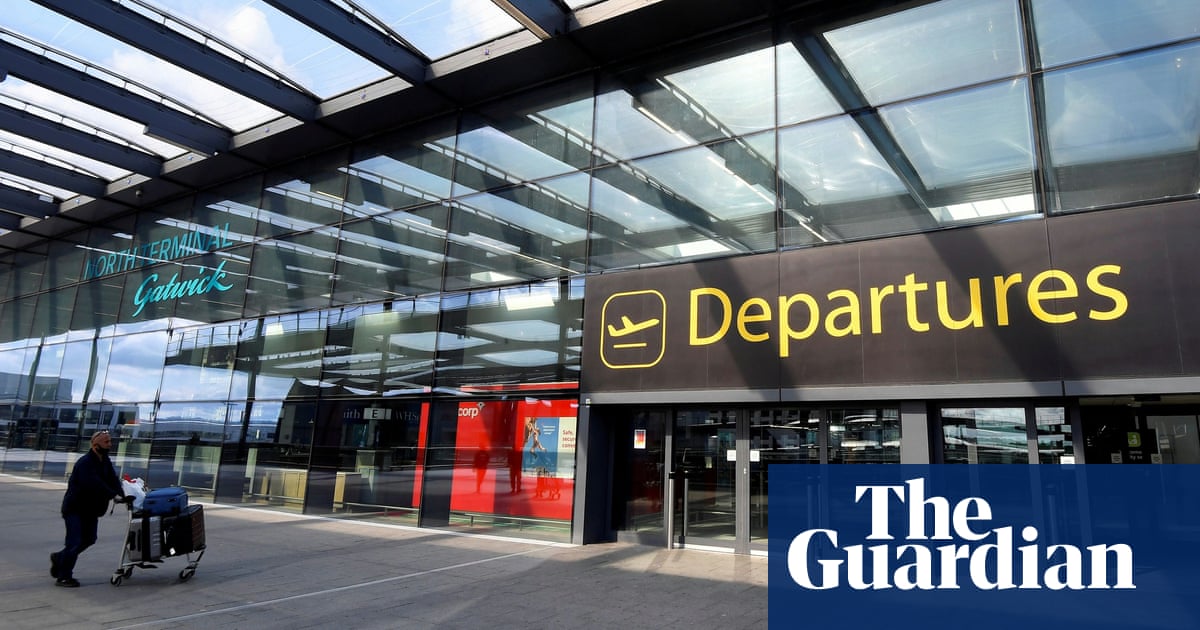From the humble luggage tray to filters that mask smells at sewage plants, the sale of some of Britain’s most pedestrian assets to the world’s largest money manager is to bring a multimillion-dollar payday to a small clutch of little known bankers.
Global Infrastructure Partners (GIP), which boasts a $100bn (£79bn) collection of companies including Gatwick airport and the Suez wastewater group, has been sold to the US investment firm BlackRock in a $12.5bn deal.
The price tag puts each of GIP’sfounders and partners in line for a huge payday, nearly two decades after the New York-headquartered ports-to-pipes private equity firm was formed.
Five of the six founding partners, including the chief executive, Adebayo Ogunlesi, will join BlackRock as part of the deal. The takeover will make BlackRock the world’s second largest infrastructure investor, behind Australia’s Macquarie group.
GIP was devised by Ogunlesi, his fellow former Credit Suisse banker Matthew Harris and Bill Woodburn, a former General Electric infrastructure chief who they lured to join them over dinner in Manhattan.
Ogunlesi, known as “Bayo”, was born in Nigeria and studied at Oxford and Harvard, before becoming the first non-American to serve as a law clerk in the US supreme court. From there he went on to become an influential dealmaker at Credit Suisse.
In Europe, the business is led by Michael McGhee, another former Credit Suisse banker and founding partner who joined GIP at its inception. He leads its transport sector industry investment teams including deals for airports, ports and freight rail. GIP has also employed the former British prime minister Sir John Major as chair of its advisory board.
The fund was started in 2006 with $500m each from General Electric and Credit Suisse, and grew quickly, snapping up crumbling assets in the energy, transport and water industries, before fixing them and selling them on.
Now, it owns 40 companies generating more than $75bn in annual revenues, with a combined workforce of 115,000 people.
In the UK, its portfolio includes Gatwick; a stake in Peel Ports, which owns seven ports, and Hornsea 1, the project to build the world’s largest offshore windfarm in the North Sea. GIP bought City airport for £760m in 2006, and sold the London hub to a Canadian-led consortium for £2bn in 2016.
BlackRock hopes to capitalise on a global acceleration in government infrastructure spending. Politicians have attempted to support infrastructure spending to boost their domestic economies, notably on renewable energy initiatives, including Joe Biden’s $369bn Inflation Reduction Act.
after newsletter promotion
The chair and chief executive of BlackRock, Larry Fink, said: “Infrastructure is one of the most exciting long-term investment opportunities, as a number of structural shifts reshape the global economy … Policymakers are only just beginning to implement once-in-a-generation financial incentives for new infrastructure technologies and projects.”
BlackRock will pay $3bn in cash and 12m of its own shares as part of the deal to buy GIP. The 400 people directly employed by GIP will receive some of the stock.
As well as fund’s founders and partners, the takeover represents a payday for bankers and lawyers for BlackRock and GIP when it is completed, likely between July and September. Bankers from the US financial services firm Perella Weinberg Partners are working for BlackRock, while Evercore is advising GIP.
Separately on Friday, BlackRock said its assets under management had topped $10tn for the first time since 2021. Its revenues rose 7% to $4.6bn in the final quarter of 2023.







